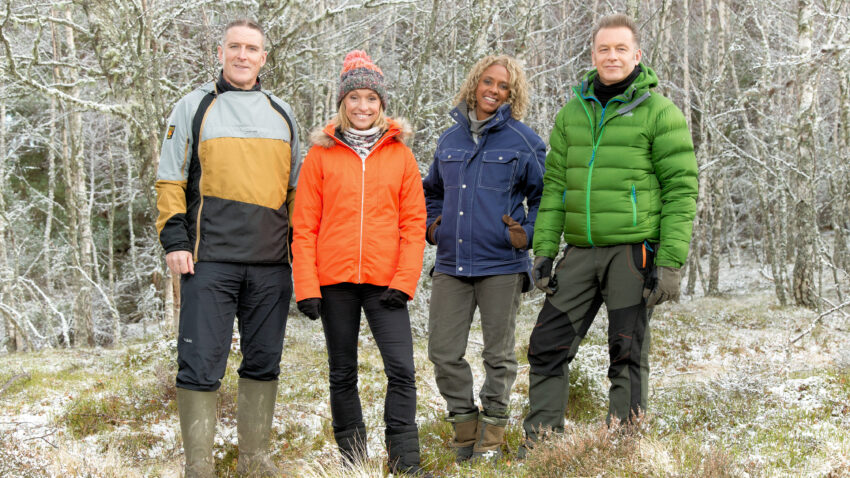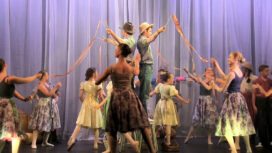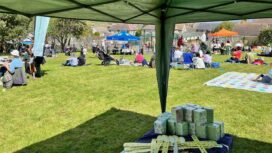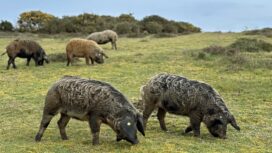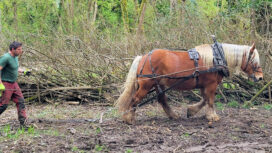A team of 60 camera crew, engineers and producers from the BBC are heading back to RSPB Arne near Wareham in Dorset for a week in January 2024 to broadcast four live episodes of Winterwatch.
Presenters Chris Packham, Michaela Strachan and Iolo Williams will join RSPB senior sites manager Peter Robertson and his team at Arne for the third time in 12 months, having been there for Springwatch 2023 and for some episodes of a mini Autumnwatch feature in October 2023.
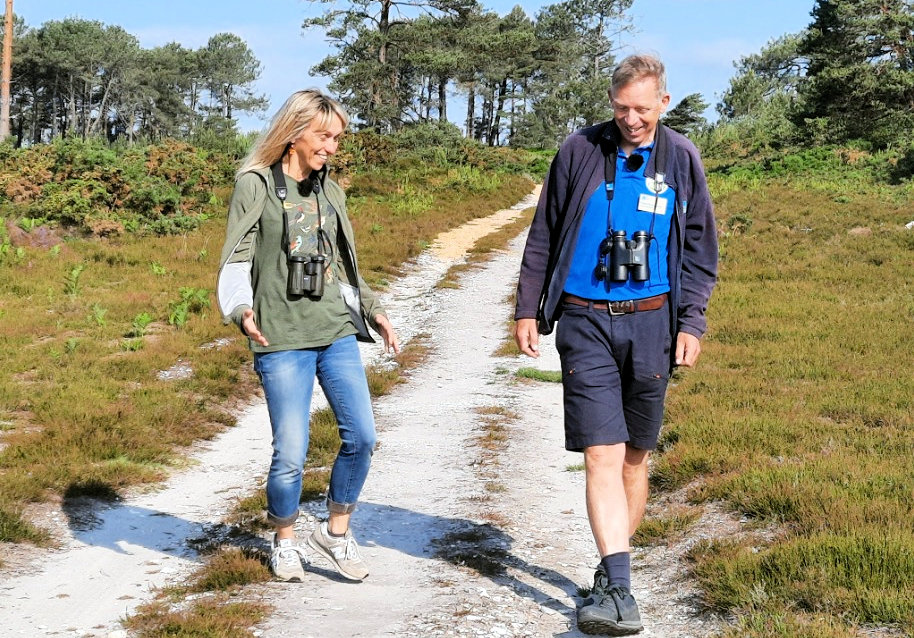
RSPB Arne senior sites manager Peter Robertson is hosting the BBC Watch team for the third time in a year
A team of 60 will set up base
The BBC team will start arriving at Arne from Sunday 7th January 2024 to set up wildlife cameras, an editing suite and a filming base at the Purbeck bird reserve.
Live broadcasts will go out on BBC Two at 8pm for four nights from Tuesday 16th January 2024 and will showcase the wildlife around Purbeck, Poole Harbour and Brownsea Island, with additional reports from Gillian Burke in the Orkney Isles, some 800 miles from Swanage.
The team is hoping to get footage of Arne’s sika deer, badgers, foxes, the white tailed eagles which are now resident in Poole Harbour and winter bird visitors including avocet and spoonbills.
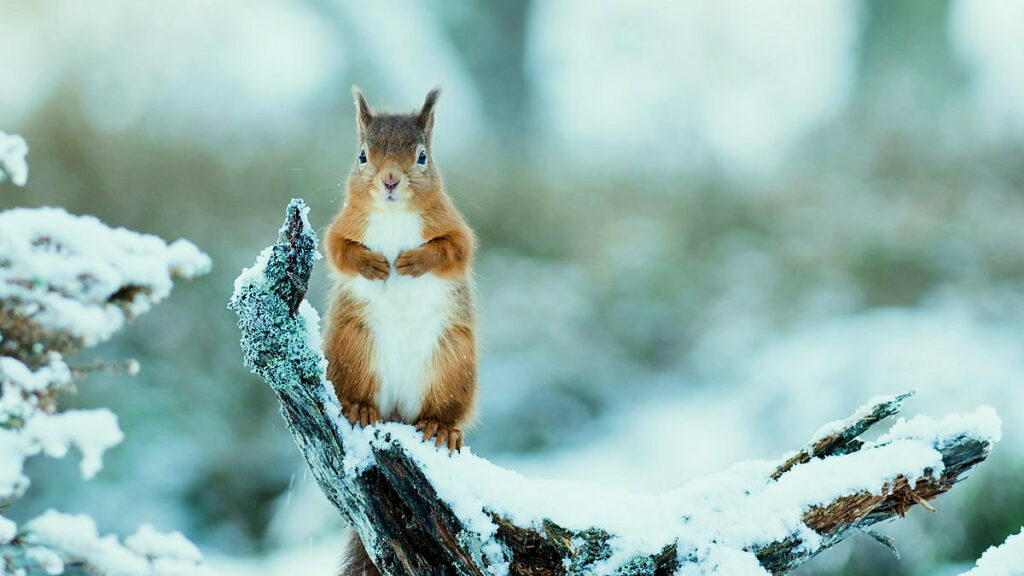
BBC crews are hoping to film the red squirrels on Brownsea Island
“A large list of things they’re hoping to film”
Peter Robertson of RSPB Arne, said:
“It’s always difficult to make promises with wildlife, particularly at this time of year. There is quite a large list of things that the Winterwatch team is hoping to film, but the nature of the beast is that we will end up seeing what they end up finding.
“They do hope to film the red squirrels on Brownsea Island and we may find that bats may break their hibernation if the temperature rises a little and there’s a chance of some insects on the wing.
“Bats don’t have the body fat reserves to hibernate a full winter as they are small creatures and hibernation puts a big demand on them, so they tend to break hibernation when there’s a chance to top up their reserves a little, which happens more often in a milder winter.
“Poole Harbour is fantastic over winter, there are huge numbers of winter birds like avocets, black tailed godwits, teal, widgeon, all sorts of things which come here in the winter because of the rich feeding.
“We have all the winter thrushes here at the moment, lots of fieldfare and redwings which are things that you won’t see in the spring – it’s quite spectacular.”
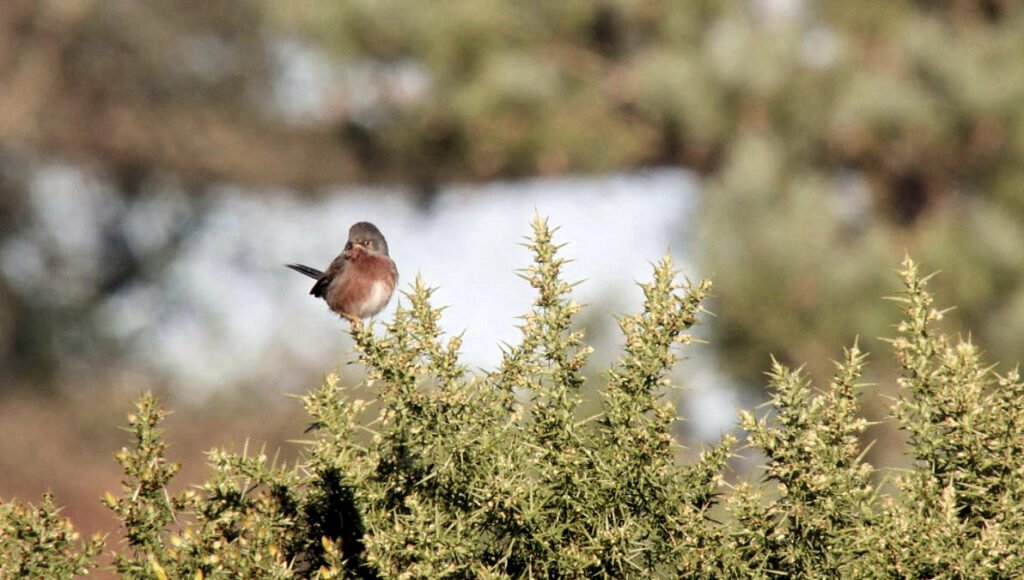
The last time Winterwatch filmed at Arne, Dartford warblers were stars of the show
“Springwatch was a revelation”
The last time that the BBC presented Winterwatch from RSPB Arne in 2017, presenters reported on the murmuration of starlings as well as the Dartford Warbler, one of the reserve’s real success stories.
When the RSPB first opened Arne in 1966 it was in part attracted to the area because of a dozen breeding pairs of Dartford warbler, one of the UK’s rarest birds. Since then the population has increased to a record high of nearly 200 pairs.
Peter Robertson added:
“One of the great things about the Watch programmes is that they give a good insight into the common things as well as the rare, so you get a chance to see how things we might take for granted are behaving at this time of year.
“Springwatch was a revelation with some of the behaviours that we saw – especially the cannibalistic behaviour of the nightjar that ate its chick, which was just gobsmacking – and I am hopefully expecting more surprises during Winterwatch.
“I think it is a timely reminder that wildlife is still out there and even on a grey and wet day you can put your waterproofs on and get yourself out there and see some wildlife, it’s good for the soul.
“It will be really exciting to have the team back here, there is a real buzz around and a nice reminder of what an important place for wildlife Arne is and a lovely way to share that with the country.”
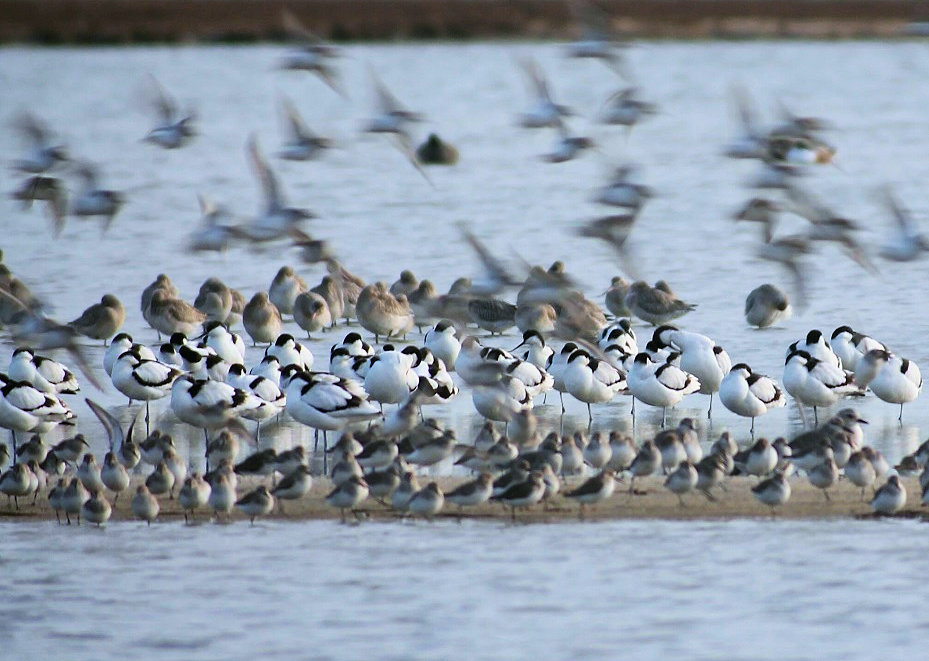
Wintering birds in the waters of Poole Harbour, like avocet, make a stunning sight
Carcass cameras to attract scavengers
One feature of Winterwatch 2024 will be the delightfully named carcass cameras, which it is hoped will catch the eye of the white tailed eagles and other winter scavengers including ravens and foxes.
A BBC spokesperson for Winterwatch said:
“Winter is a season of extremes, from frosty mornings and snowy days to grey days of endless drizzle, and it can be a tough time of year for us and our wildlife.
“With a theme of resilience and renewal, Winterwatch will be shining a light on the wildlife and people who battle through this inhospitable season and come out the other side.
“We’ll have cameras based on Brownsea Island to check in on its population of red squirrels, whilst Poole Harbour is an important overwintering site for thousands of wading birds that gather to feed on the invertebrate rich tidal zones.
“Hundreds of avocet form mesmerising flocks with a diverse supporting cast of other species such as redshank, lapwing, egrets and raptors, such as hen harriers, short eared owls, goshawks, marsh harriers, peregrines and merlins!”
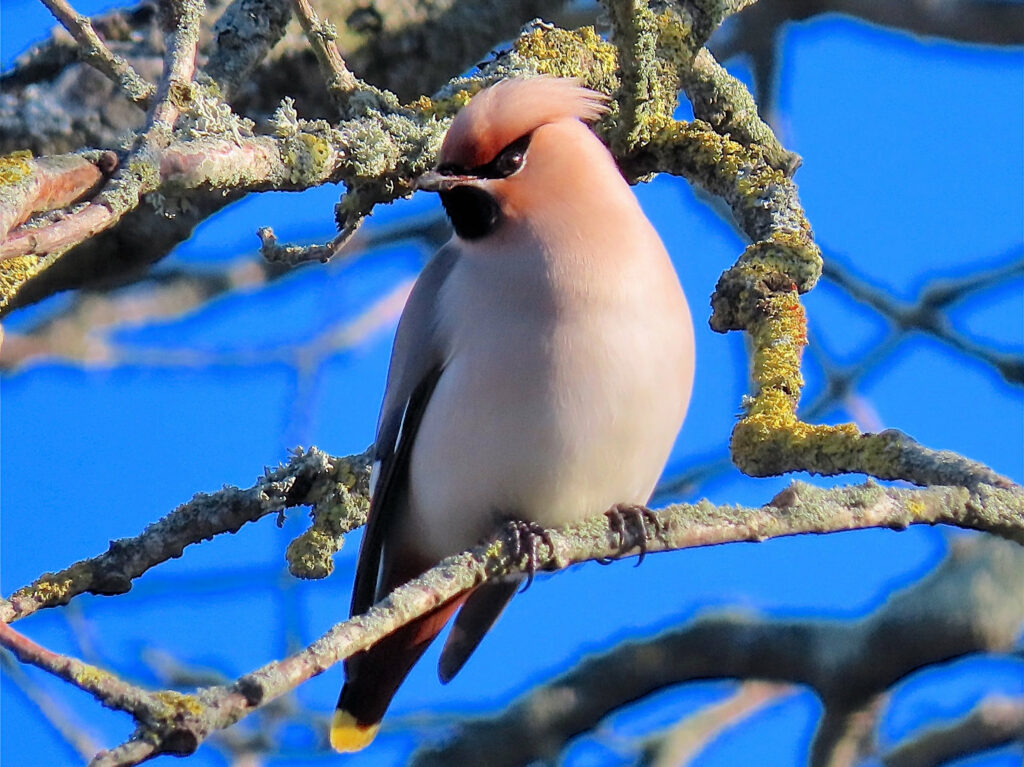
Waxwings are occasional winter visitors to Dorset, and are here in larger numbers than usual this year
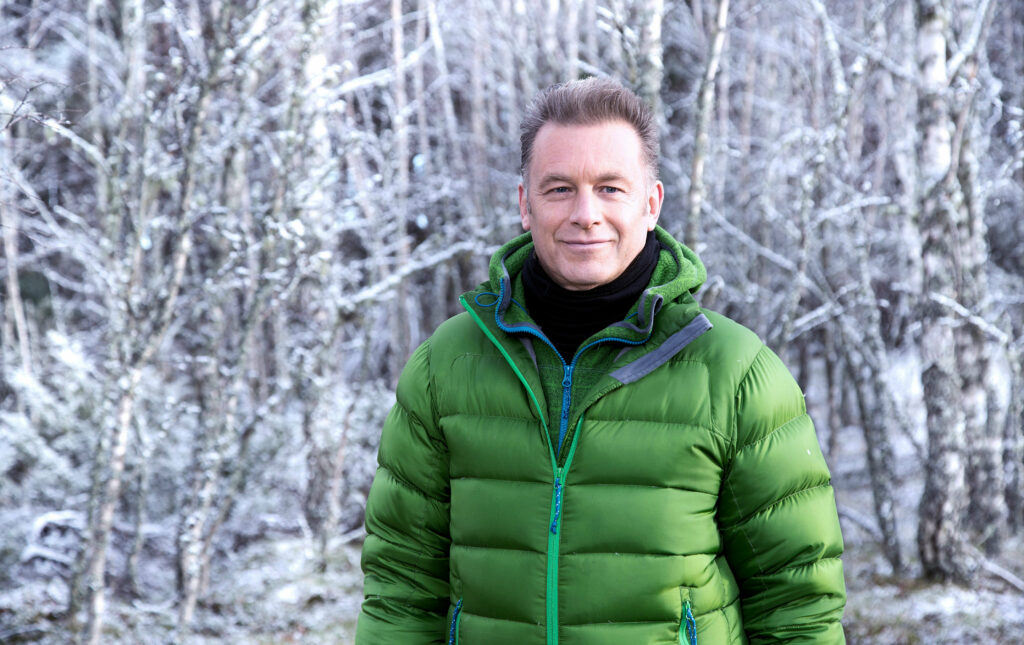
Chris Packham will head up the BBC Winterwatch team at RSPB Arne
“An enormous amount of activity”
Presenter Chris Packham said:
“There’s always this lingering misconception that winter is a time of death and decay, where everything has hibernated or migrated, and it couldn’t be further from the truth, there’s always an enormous amount of activity.
“There are practically no leaves on the trees which makes it easier to see some species and we’ll get an enormous influx of waders and waterfowl from further north in Europe, filling the estuary areas around Arne itself.
“Foxes are one of my favourite winter animals, because they are beautiful and so successful. I saw one earlier this week when I was out in the woods – it’s always a treat to see a fox dashing through that sort of crumbling, rusty bracken.
“I also suppose I have a taste for the exotic, there are plenty of waxwings in the country at the moment, birds that come from Scandinavia. Some years they come in greater numbers than others and this appears to be quite a good year for them.”
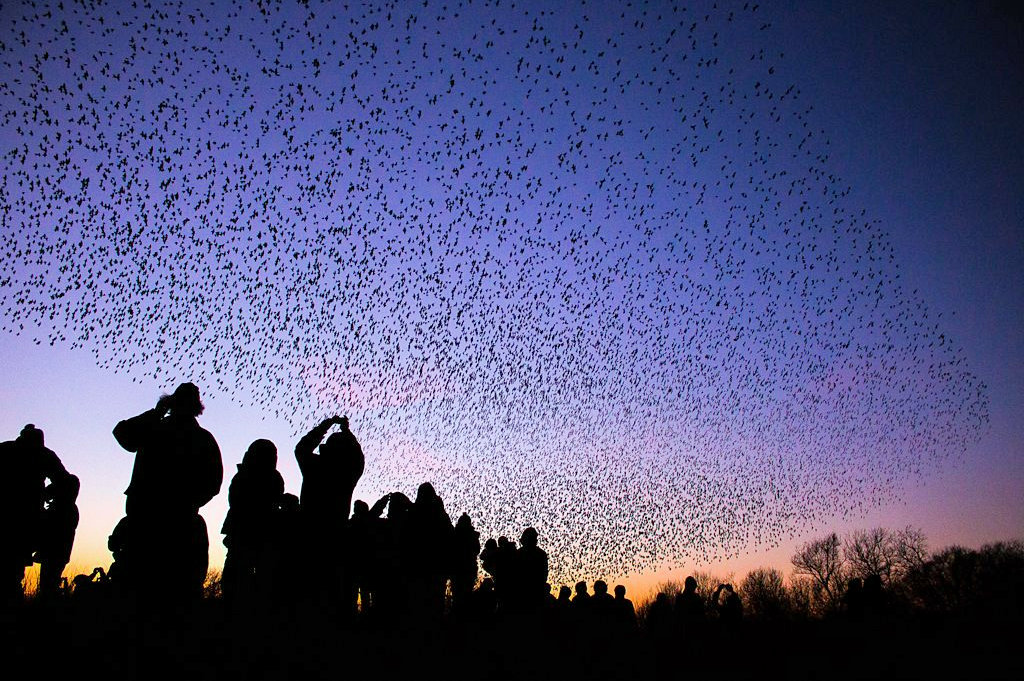
Murmurations of starlings were filmed when BBC Winterwatch last visited RSPB Arne in 2017
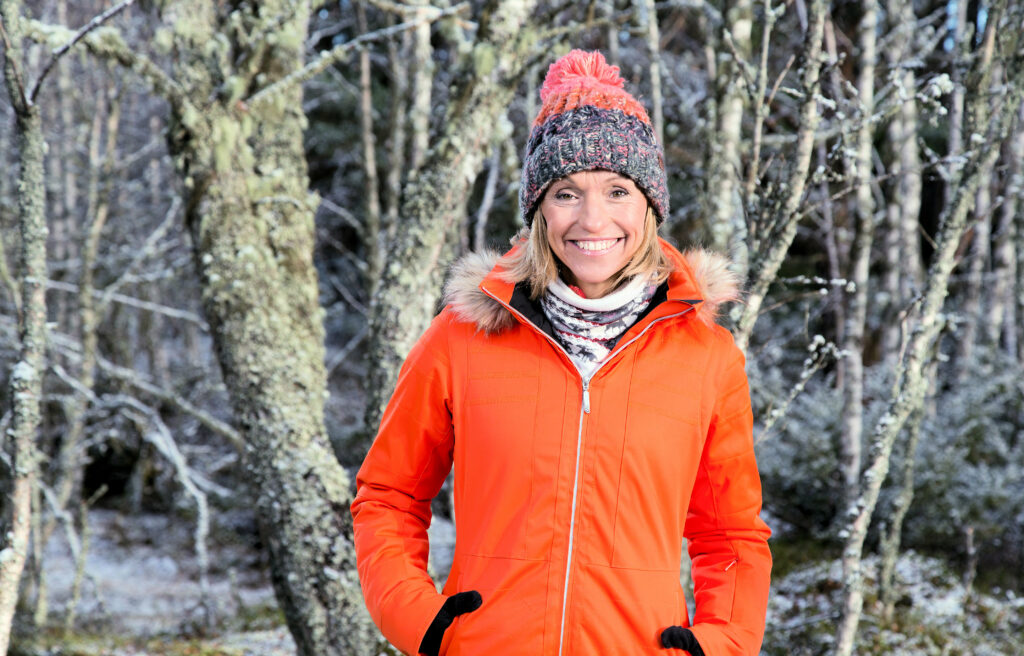
Presenter Michaela Strachan: 2023 has been a tough year for people
“I hope we will bring people some joy”
Michaela Strachan said she appreciated that 2023 had been a tough year for people, especially when the news was full of images of war, and added:
“I hope Winterwatch will bring people some joy, a programme to look forward to. Of course the Natural World is suffering hugely, but hopefully we can showcase the beauty of winter, celebrate our wildlife, soak up the extraordinary survival techniques of the natural world and in some ways learn from it.
“We always hope to bring some warmth and humour to people’s living rooms, and inspire people to spend time outdoors!
“Winter is a time where people tend to hibernate, but if you get the right gear on, wrap up warm and make the effort to go out into the natural world, you will be rewarded with sights of some fab wildlife, especially all the great winter spectacles.
“Starling murmurations are such a treat to see, a spectacular aerial ballet. Winter flocks of noisy pink footed geese are always a memorable sight, and personally I love just walking in the woods on a crisp winter day, searching for fungi and appreciating the beauty, the colours and the structure.”
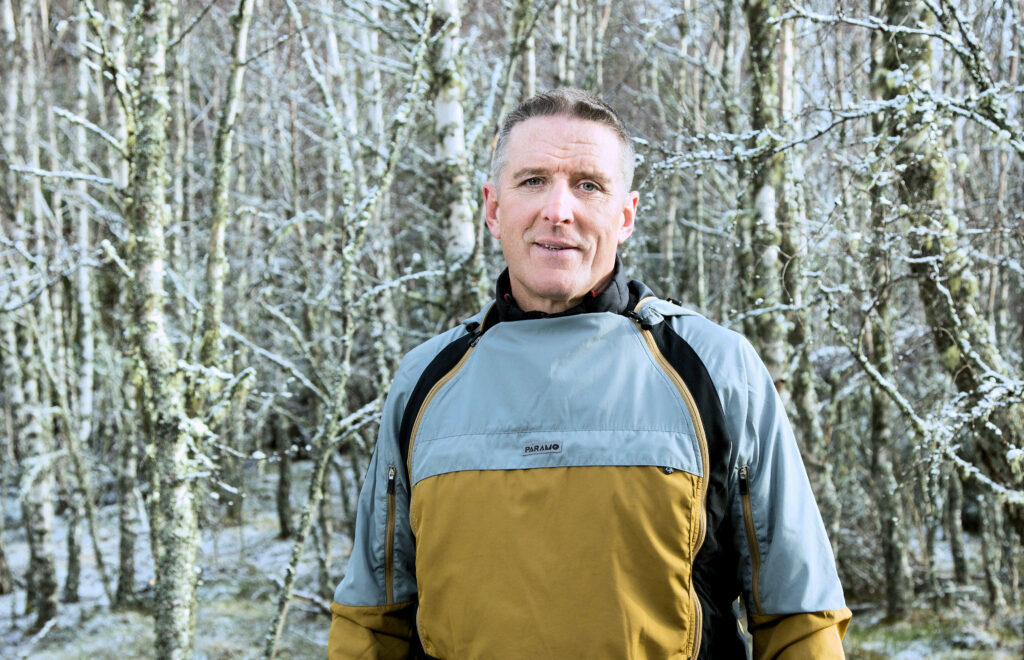
Iolo Williams had to miss BBC Springwatch from Arne due to health problems
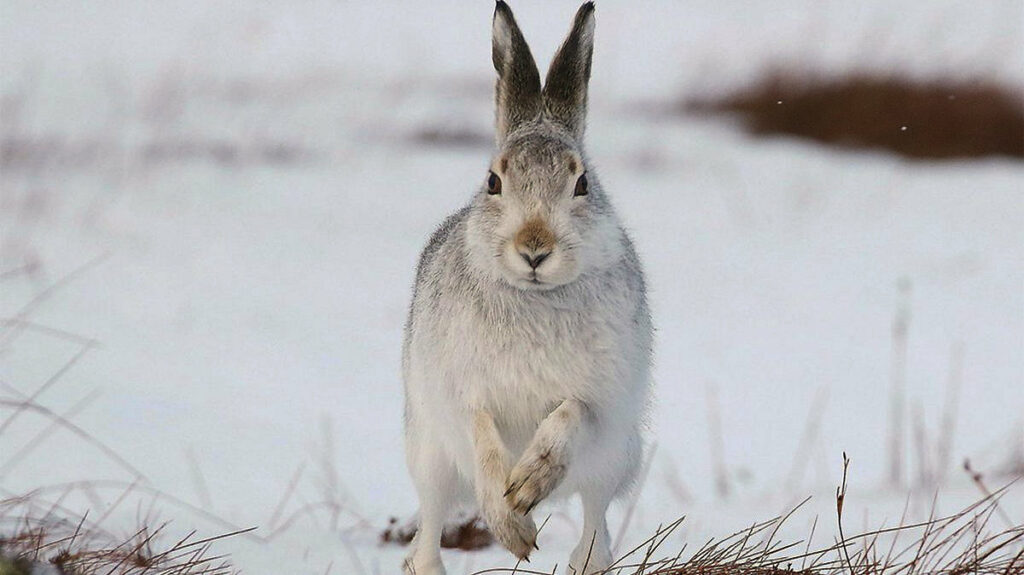
Naturally camouflaged, a hare in its best winter whites
“Arne at its brilliant best”
The third presenter at Arne will be Iolo Williams, who had to sit out of Springwatch when he suffered a heart attack during a walk in the Welsh mountains, alone and almost two miles away from his car and his phone.
Although he managed to get to hospital for treatment, he suffered further complications which meant he was unable to work for several months, but says he is now delighted to be back in Purbeck.
Iolo Williams said:
“I am really looking forward to seeing Arne at its brilliant best, winter down here is a fantastic time.
“Even though the nightjars have gone back down to Africa and a lot of the reptiles will have disappeared underground into hibernation, the shallow lagoons will be alive with thousands of waders and wildfowl and that’s what I’m looking forward to seeing more than anything else.”
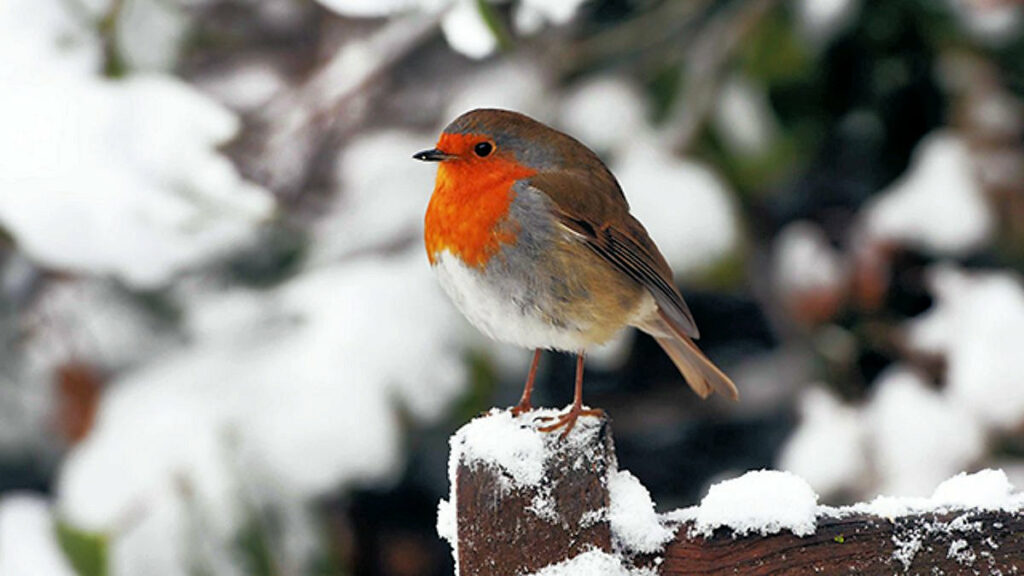
With just a little work, your garden can become a haven for wildlife
“Just get up and go out”
Iolo added:
“My best wildlife spotting tip for the winter, which I would give to everyone, is simple – get up off your backside and get out because you’re going to see nothing sitting on the sofa in front of the fire.
“The local woodlands, into your garden, into the park, to the river, to the estuary, doesn’t matter where you go, just get up and go out.
“Even in your own garden, you can do loads to attract wildlife and if everybody did something it would make a massive difference.
“You can create a hedge or plant some native trees, preferably something like holly or a bit of ivy, which is evergreen and provides shelter and food all year round for not just birds but for small mammals, for invertebrates, for pollinators as well.
“You can put up bee boxes, you can put up nest boxes, you can create little piles of branches, twigs, leaves, used by frogs, toads, newts, slugs, snails and hedgehogs.
“You can leave small sections of your lawn, or all of your lawn if you want to, turn it into a meadow, that is absolutely brilliant. I’ve done that for the last five years.”
Further information
- Keep up to date with all Winterwatch updates on the BBC website
